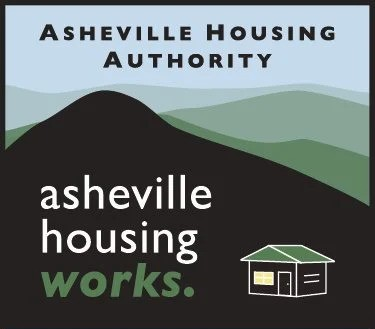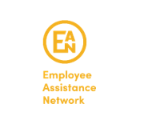Employee Assistance Network Resources List
Additional resources for Hurricane Helene disaster Relief. This is a multi-county source list
FEMA INFORMATION
North Carolina Tropical Storm Helene
Incident Period: Sep 25, 2024 – Dec 18, 2024
Declaration Date: Sep 28, 2024
Quick Links
- Recovery resources: State & Local | National
- Connect: Social Media | Mobile App & Text
- 24/7 counseling: Disaster Distress Helpline
Individuals & Households
For FEMA Assistance:
- Go online to DisasterAssistance.gov
- Use the FEMA App
- Call 800-621-3362 from 7 a.m. to 11 p.m. ET daily. The telephone line is open every day and help is available in most languages. If you use a relay service, such as Video Relay Service (VRS), captioned telephone or other service, give FEMA your number for that service.
- In person at a Disaster Recovery Center (DRC locations click here).
- Contact Pisgah Legal Services at https://www.pisgahlegal.org/helene
To view an accessible video on how to apply, visit Three Ways to Apply for FEMA Disaster Assistance – YouTube.
Pisgah Legal Services – Helene Resources
Upcoming Events
Pisgah Legal Services is here to help the people of our mountain region recover and rebuild from Hurricane Helene.
We have been active in disaster recovery since immediately after the storm, assisting our neighbors throughout Western North Carolina with disaster-related issues including FEMA applications and legal issues such as housing problems, FEMA appeals, homeowners insurance denials, and consumer protection against frauds and scams.
As always, you can apply online for our services, or call us at (828) 253-0406 or toll free 1-800-489-6144.
NEED HELP?
Complex FEMA Appeals (home/property damage, housing assistance, etc.) – Call Pisgah Legal at 828.253.0406, choose option 8.
Insurance Claims – Insurance Claims and Appeals (English) and Spanish
Need help with a Homeowner Insurance Denial or Dispute? Call Pisgah Legal at 828.253.0406, choose option 8.
Seek assistance or file a complaint with the NC Department of Insurance
Tenants/Renters Rights – What You Need to Know About Evictions and Repairs (English) and Spanish
Avoiding Consumer Scams – Avoiding Scams and Frauds (English) and Spanish
- VIDEO: Protecting Yourself from Scams After Helene
- VIDEO: Protecting Yourself from Title and Deed Scams
Disaster Unemployment Benefits
Health Insurance through Healthcare.gov/ACA and Medicaid
Community Resources – Click Here
Nonprofit Resources for Federally Declared Natural Disaster Relief
SUPPORT THIS WORK
Pisgah Legal’s Hurricane Recovery Fund
Pisgah Legal Services is working in partnership with Legal Aid of NC and is sharing content and resources.
DisasterAssistance.gov
RED CROSS and OTHER OPEN SHELTERS
Locate the nearest open Red Cross shelter. Or go to the Emergency Shelter page to find other shelters in your area.
COMMON DISASTER-RELATED RUMORS
Protect yourself after a disaster by learning about rumors and scams.
SMALL BUSINESS ADMINISTRATION
Read the SBA Disaster Assistance page to learn about low-interest disaster loans for businesses and homeowners.
LOCAL AGENCIES
Find your state’s emergency management office for resources and county contacts.
What You’ll Need When You Apply:
1. Social Security Number/Card (SSN) – Use yours OR the SSN of a qualified minor child.
Minor child must live in the household and be a U.S. citizen, non-citizen national, or qualified non-citizen. The applicant or co-applicant must be the parent or guardian of the minor child.
To qualify for FEMA Assistance, the person named as the applicant must be a U.S. citizen, non-citizen national, or qualified non-citizen. If you need to apply under a qualified minor child who lives in your household, you must enter the child’s information as the applicant.
2. Annual Household Income – Include your household’s pre-disaster income before you deduct anything.
3. Contact Information – Include your phone number; home address at the time of the disaster; and current mailing and email addresses.
If you use a video relay service (VRS), captioned telephone (CTS), or other service, give FEMA your number for that service.
4. Insurance Information/Policies – Include the type(s) of coverage and insurance company name(s) if you can access it.
If you don’t have insurance information right now, you can come back and add it later.
5. Bank Account Information – Include the name of your bank or financial company and your routing and account numbers.
If you qualify for assistance, we can deposit the money directly into your account. You don’t need to have a bank account to get assistance.
6. Proof of residence and/or ownership – Utility bill, copy of deed, etc.
If you have homeowners, renters or flood insurance, you should file a claim as soon as possible. FEMA cannot duplicate benefits for losses covered by insurance. If your policy does not cover all your disaster expenses, you may be eligible for federal assistance.
Report FEMA Denials Here
Please note: This link is meant to provide details on denials so that the city can work with FEMA to cut the red tape. It is not part of the official FEMA appeals process.
Disaster Unemployment Assistance
General Requirements
To be eligible for DUA, individuals must:
- Provide proof of identity.
- Be a U.S. citizen, non-citizen national, or qualified non-citizen.
- File an application for DUA with the local unemployment insurance agency within 30 days of the date of the public announcement of availability of DUA[2].
- Be ineligible for regular unemployment insurance.
- Be unemployed or partially unemployed as a direct result of the major disaster.
- Be able and available for work, unless injured as a direct result of the disaster (see conditions below).
- Have not refused an offer of employment in a suitable position.
Conditions of Unemployment
Applicants must meet one of the following conditions of unemployment or inability to perform services in self-employment as a direct result of the disaster:
- The individual has had a week of unemployment following the date the major disaster began.
- The individual is unable to reach their place of employment.
- The individual was scheduled to start work and the job no longer exists due to the major disaster, or the individual was unable to reach the job.
- The individual became the major support of the household because the head of the household died as a direct result of the disaster.
- The individual cannot work because of an injury caused as a direct result of the major disaster.
- The individual experienced a lack of work or loss of revenue when the employer (or the self-employed individual’s business) lost a majority of income or revenue from an entity in the major disaster area that was damaged, destroyed, or closed by the federal, state or local government as a direct result of the major disaster.
Small Business (SBA) Disaster Information
Apply for SBA Disaster Loans
Duke Energy Updates
Carolinas Restoration
Electrical safety guidelines for floods
- If rising water threatens your home or business – or if you evacuate due to flooding – turn off your power at the circuit breaker panel or fuse box.
- Electric current passes easily through water, so stay away from downed electrical lines.
- Don’t drive over – and don’t stand near – downed electrical lines.
- Never replace a fuse or touch a circuit breaker with wet hands, or while standing on a wet or damp surface.
- If your home or business is flooded, Duke Energy cannot reconnect power until the electrical system has been inspected by a licensed electrician. If there is damage, an electrician will need to make necessary repairs and obtain verification from your local building inspection authority before power can be restored.
Steps to take in the event of a power outage
- Report outages through our website, mobile app, text OUT to 57801, or call 800POWERON (800.419.6356).
- Sign up for Outage Alerts and regularly check our Outage Map for estimated restoration times.
- Visit our Storm Center for comprehensive safety tips before, during, and after severe weather.


